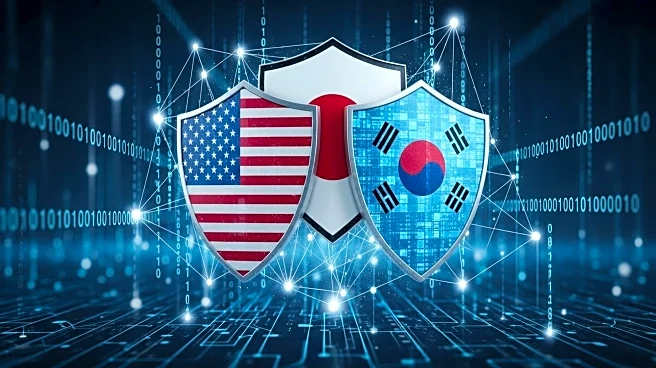What's Happening?
The United States, Japan, and South Korea have pledged to increase their efforts to block North Korea's use of overseas IT workers to fund its weapons programs. According to a joint statement issued by the three countries, North Korean programmers are posing as non-North Korean freelancers with fake identities to secure contracts globally, including in North America, Europe, and East Asia. These operatives are using sophisticated tactics, such as artificial intelligence tools and foreign facilitators, to conceal their identities and engage in malicious cyber activities, particularly in the blockchain sector. The US State Department highlighted the risks associated with hiring North Korean IT workers, including theft of intellectual property, data, and funds, as well as reputational harm and legal consequences.
Why It's Important?
The intensification of efforts by the US, Japan, and South Korea to counter North Korean cyber activities is significant due to the potential threats posed by these operatives. North Korea has historically mobilized IT workers to launch cyberattacks on banks, businesses, and state agencies, stealing money and classified secrets. The evolution of their skills and adoption of new technologies heightens the risk to global cybersecurity. The collaboration among these countries aims to mitigate these threats, protect intellectual property, and prevent financial losses. The move also reflects broader geopolitical tensions, as North Korea deepens its military capabilities and ties with Russia, challenging Western allies.
What's Next?
The US has designated entities and individuals supporting North Korean IT worker schemes in Russia, Laos, and China, while Japan and South Korea have issued warnings and advisories to help companies avoid hiring these operatives. The three countries hosted an event in Tokyo with Mandiant, a cybersecurity company, to enhance public-private partnerships and international collaboration. These steps indicate ongoing efforts to strengthen defenses against North Korean cyber threats and protect global cybersecurity interests.










